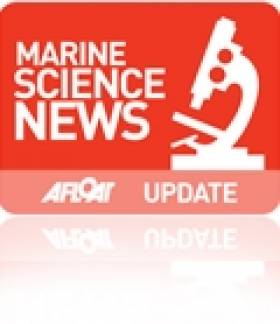Displaying items by tag: Cork Chamber
The Blue Economy: Business Breakfast Hosted by Cork Chamber
#BlueEconomy - Dr Peter Heffernan, CEO of the Marine Institute is to be the guest speaker of Cork Chamber's June Business Breakfast on Thursday 25th June in the Clarion Hotel.
The Blue Economy is seen as hugely important for the island of Ireland and Cork is naturally well positioned to reap the benefits of this growth, boasting the second largest natural harbour in the world. Focused around the Ringaskiddy area, the Irish Maritime Research Cluster (IMERC) are at the centre of promoting Ireland as a world renowned maritime and research development location.
It is also the site of the National Maritime College of Ireland, the Irish Naval Service and the UCC Beaufort Laboratory.
Dr Peter Heffernan was appointed as CEO of the Marine Institute in 1994. The Marine Institute is Ireland's National agency for marine Research Technology Development & Innovation (RTDI).
Dr Heffernan obtained PhD in marine science from the National University of Ireland, Galway. He held a post-doctoral position at University of Georgia (USA) in 1985, he has published over 40 scientific papers, has over 20-years of experience in leading marine science policy developments at national, EU and trans-Atlantic levels.
This is an opportunity for Chamber members to get an insight into the huge potential in the marine industry in Ireland and in particular, in the Southern Region.
Members of the public are also invited to the Cork Chamber event where further information, registration and event times are available through this website link HERE.





























































